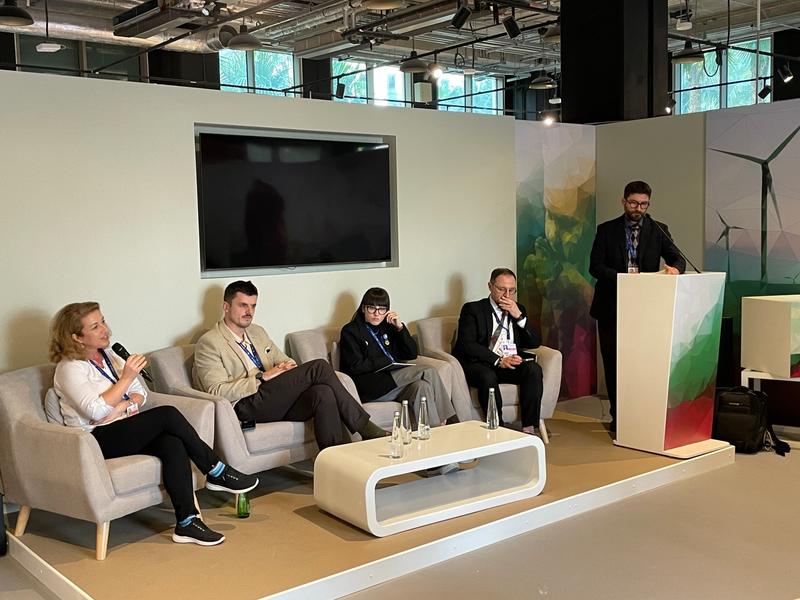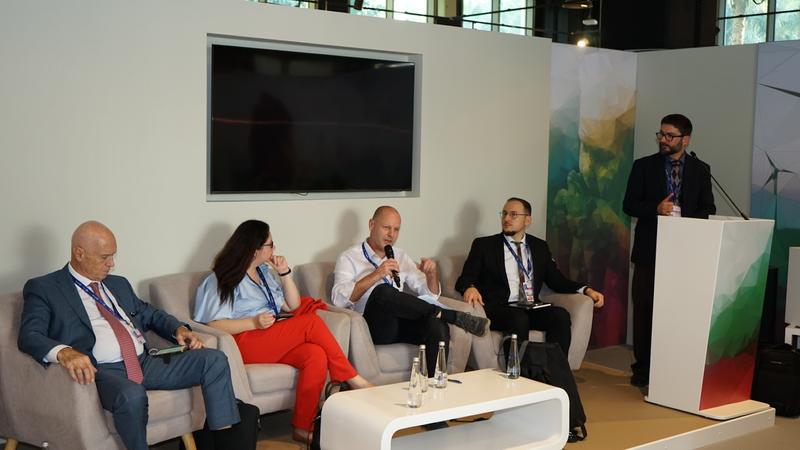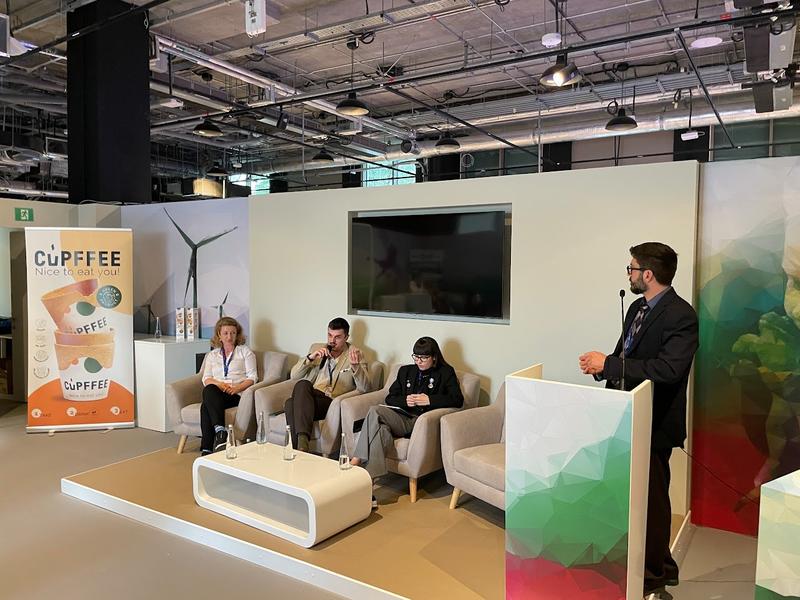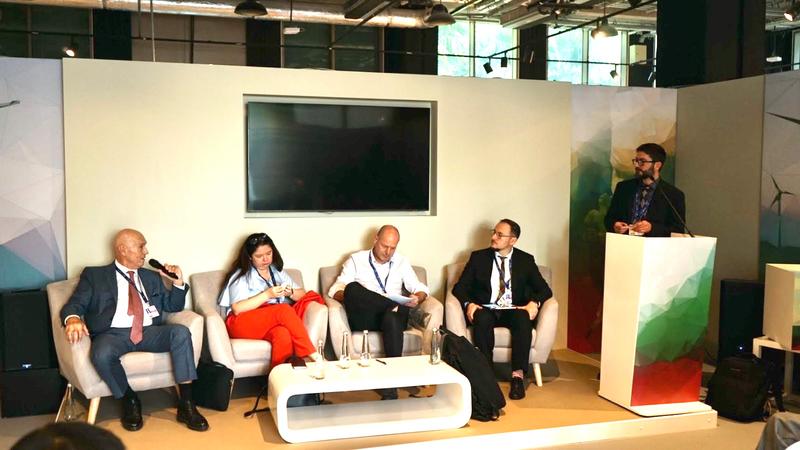The perspectives for the energy transition in Central and Eastern Europe were presented at a forum at the Bulgarian Pavilion at COP28
07 Dec, 2023 | 14:09Bulgaria's Ministry of Environment and Water hosted a forum at the Bulgarian pavilion at COP28, whereby the perspectives for the energy transition in the region were presented under the title "Role and contribution of Central and Eastern Europe and South Eastern Europe towards tripling the share of renewable energy sources by 2030". The theme is also one of the main objectives of COP28 in Dubai.
The discussion gave participants the opportunity to see the region in perspective and focus on the need to raise the ambition for a high share of renewable energy.
Greece's growing role and influence in the region in the energy field was presented by George Kremlis, Honorary Director of the European Commission and representative of the European Public Law Organization in Bulgaria. From a near 60% share of coal in 2010, Greece is projecting to reach an 80% share of renewables in electricity generation by 2030. A diversity of energy sources, large and small infrastructure projects, pilot projects and programs, and forward-looking actions put the country in a position for a promising energy future. The importance of the project for a pipeline along the Mediterranean between Greece and Egypt was highlighted, which should allow the exchange of renewable energy between North Africa and through the Balkans to Central Europe and Germany and Poland. George Kremlis highlighted the very good energy cooperation with Bulgaria in recent years and the benefits of improved connectivity with new transmission lines between our countries.
In his presentation, Dr. Lutz Schaefer from the German Federal Ministry for Economic Cooperation and Development (BMZ) showed that the country is confidently moving towards a coal phase-out in 2030 and will achieve an 80% share of renewables in the electricity sector without the help of base load nuclear and coal.
Alexandra-Maria Bocse, State Advisor on Climate and Sustainability to the President of Romania, spoke about the country's new ambition to achieve a 55% share of renewables by 2030 and work on key infrastructure projects to strengthen the electricity grid and connectioms with Hungary and Moldova. She talked about a transmission line along the Black Sea to Georgia and then to Azerbaijan to exchange electricity from renewable sources between Europe and the Caspian region, a project also prioritied by the European Commission.
Oleksii Ryabchyn, a negotiator for Ukraine at the UN global climate conference, said the country was working on its own climate and energy plan despite the enormous difficulties of war. It envisages that the share of renewable energy will rise from 11% to 25% by 2030, and a coal phase-out is aimed by 2035.
Business representatives see Bulgaria, Greece, and Romania more and more as a common energy axis and a common market. This opinion was expressed by Mariana Yaneva, Vice President of the Association for Production, Storage and Trading in Electricity (APSTE). According to her, there are analyses that show that our country, even with the current technological conditions, can balance a much higher share of renewable energy with the electricity sector and urged us to be ambitious and think about a 60% share of renewable energy in the electricity sector by 2030.
For its part, Poland is on track to set a target of 67% share of renewables in the electricity sector by 2030, said Zofia Borowczyk, an analyst in the energy and climate team of the Polish Institute for Energy Modelling and Policy "Instrat". She described this target as an impressive leap from the previous target of 33% set in the first version of their 2020 climate and energy plan.
Maciej Bukowski, International Analyst at the Polish development bank BGK, touched upon the role that the Three Seas Initiative financing can play in increasing the share of renewable energy in the region. He also noted the need to broaden the scope of projects towards attracting strategic industries in the field of clean energy technologies.
The forum was moderated by Genady Kondarev from the climate policy organization E3G. He expressed the belief that the discussion will contribute to more interconnectivity, markets and attracting the industries of the future, where Central and Eastern European countries can benefit a lot within the new industrial strategy of the European Union.



